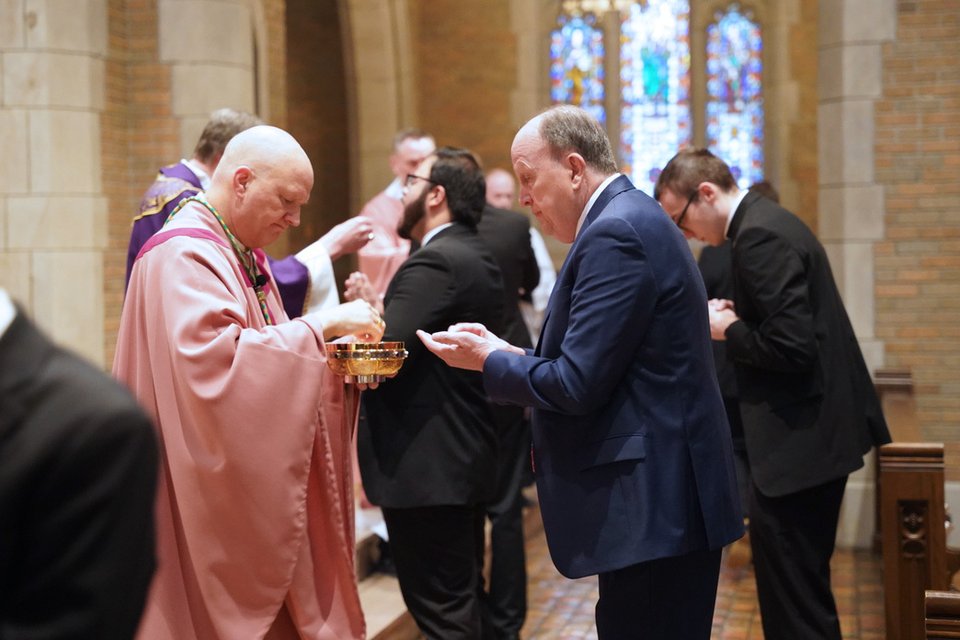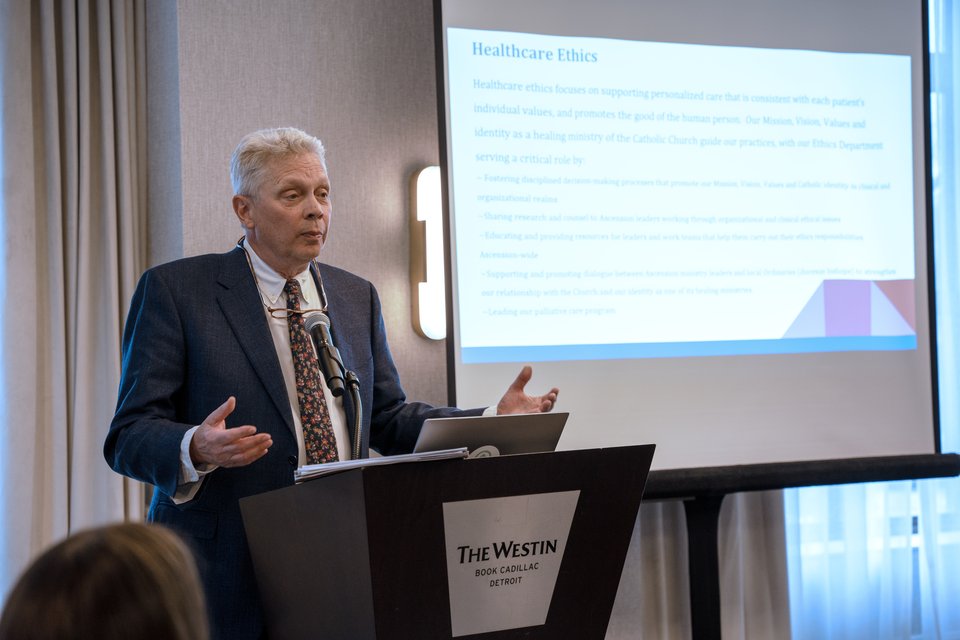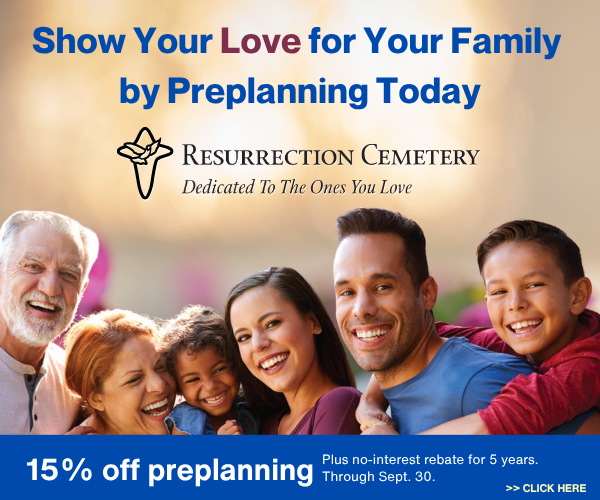Annual Rose Mass and presentation for medical professionals provides Lenten reflection, guidance on end-of-life care
DETROIT — Members of the medical profession gathered March 10 at Sacred Heart Major Seminary for a spiritual and professional refresher on the importance of faith in their roles, particularly when it comes to accompanying those who are dying.
The Rose Mass, held on the fourth Sunday of Lent, known as Laetare Sunday, marks the halfway point in Lent. Traditionally, celebrants wear rose-colored vestments similar to those worn during Gaudete Sunday in Advent.
Don't miss another story
Did you know you can get Detroit Catholic's latest daily or weekly articles delivered to your inbox? It's easy and free to sign up.
In the Archdiocese of Detroit, the Mass also marks an opportunity for health care professionals to gather for common worship, fellowship and to hear from other Catholic professionals about a topic relevant to their roles. After this year's Mass, Jason Eberl, Ph.D., professor and director of medical theology at the Albert Gnaegi Center for Health Care Ethics at St. Louis University in Missouri, presented on the topic, “Catholic Perspectives on Defining the End of Life and a ‘Good Death.’”
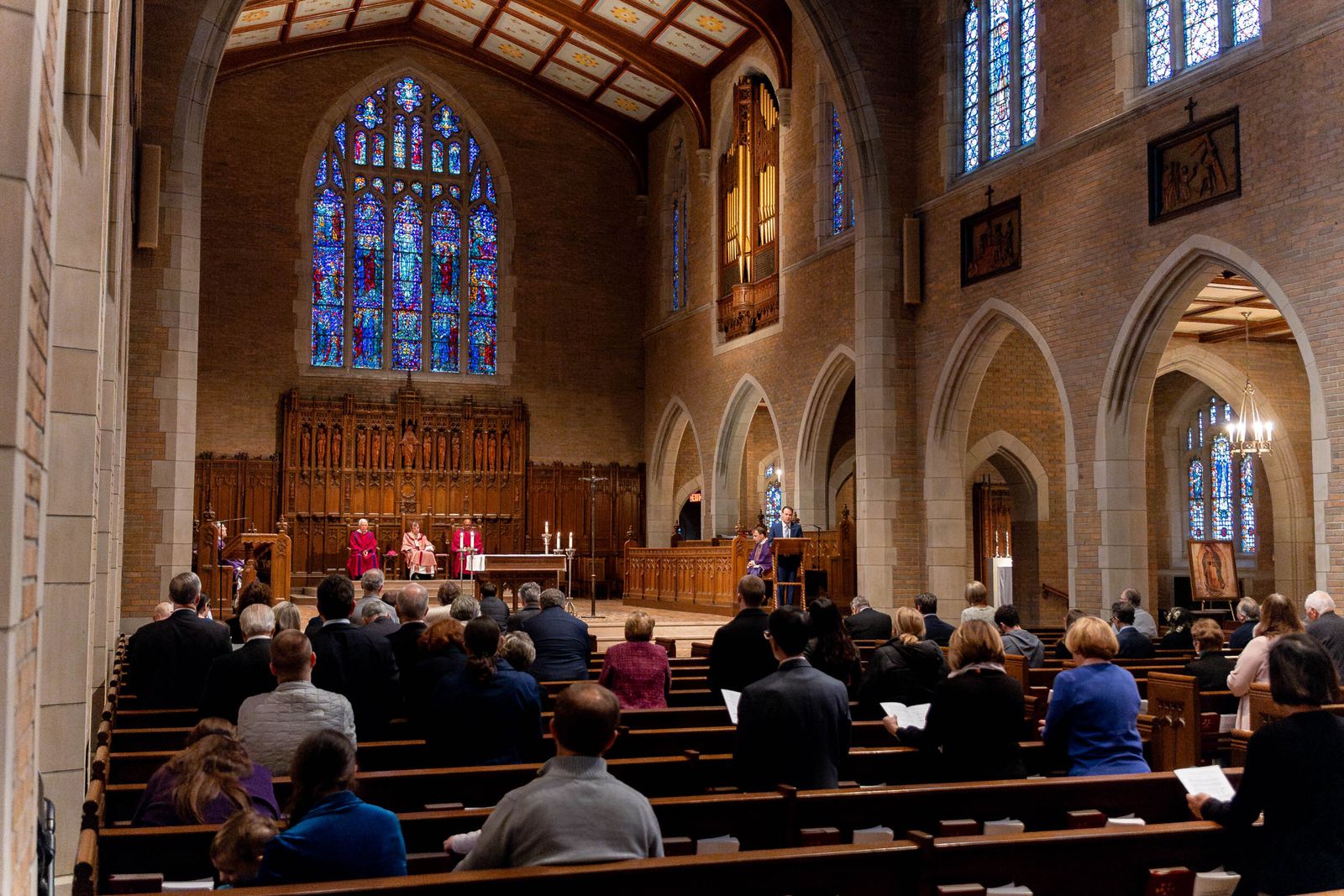
During his homily, Archbishop Allen H. Vigneron called modern health care a “complex reality.” He gave those in attendance a reflection to enhance their Lenten journey.
We should “love God our Father the way Christ does, and love each other in the same way,” the archbishop told the health care workers present. “This is what it looks like to be saved.” He suggested his listeners reflect in humility and gratitude on the unmerited gift of grace given by God, who did not “owe us this blessing.”
The archbishop referenced the first lines in the Gospel reading from the third chapter of John: “Jesus said to Nicodemus: 'Just as Moses lifted up the serpent in the desert, so must the Son of Man be lifted up, so that everyone who believes in him may have eternal life.'”
The Gospel passage gives “profound insight into the work of salvation,” in which God takes the problems of sin and death and turns them into the means of our redemption, Archbishop Vigneron said.
As Moses mounted a bronze serpent on a pole for the people who were bitten to look at and be healed, “Death, the fruit of sin, becomes the means of salvation," the archbishop observed. "How wise and loving God is.”
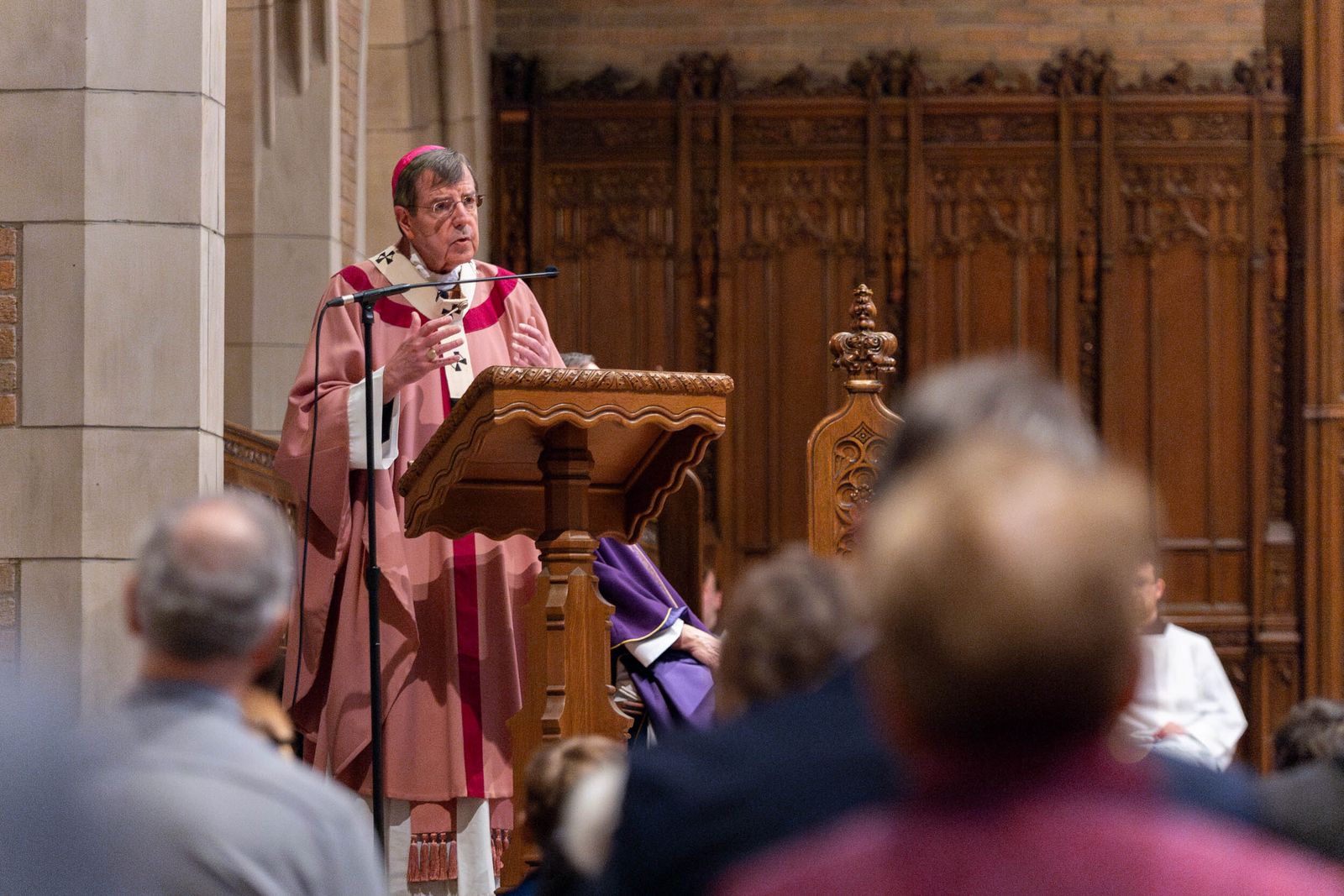
The Eucharist is the presence of the “lifted up Jesus” who brings healing, Archbishop Vigneron added. “We are a new creation through what God has done in (Christ).”
“What a wonderful thing the sacrament of penance is, when we repent and are reconciled to God,” he said. “Our hearts should be bursting with gratitude when we really understand what is going on when we are redeemed in Christ.”
“In this hour let us resolve to repent and give ourselves totally to God,” who makes his people more “loving” through our repentance, Archbishop Vigneron said. He used the example of the great saint of Auschwitz, St. Maximilian Kolbe, who gave his life for another prisoner: “In that dark place a light shown against all the power of the Third Reich.”
Following the Mass, Eberl gave a presentation on the Catholic perspectives of the end of life, reflecting on some of the ways in which the wider culture gets it wrong, and how Catholic health care institutions can be part of the solution in bringing dignity and comfort to the dying.

“We all want euthanasia,” Eberl said, clarifying the true meaning of the word. “It means a good death. That term has been appropriated by those who want to bring about causally human death.”
Supporters of assisted suicide “do not see death that is a natural result of the dying process to be a good death,” he said. Understanding what is truly a good death comes from knowing what it means to be a human person created in the image and likeness of God, Eberl said.
“What we are is a composite unity of soul and body,” Eberl said. “We are our bodies, but we are not just our bodies. We have to understand our anthropology as rational animals. We have reason and self-awareness and free will. And we are physical beings.”
Eberl said humans are also relational creatures, in the image of the Holy Trinity. “We are called to live our lives as created in the image and likeness of God who is inherently a relational being. We are called to be responsive to each other’s vulnerability.”
It is important for those in Catholic hospitals and health care institutions to realize this aspect of the human person. “We are intrinsically dependent on one another,” Eberl said. “Human dignity is not opposed to our vulnerability. It grows out of our vulnerability. We have dignity within and because of our vulnerability.”
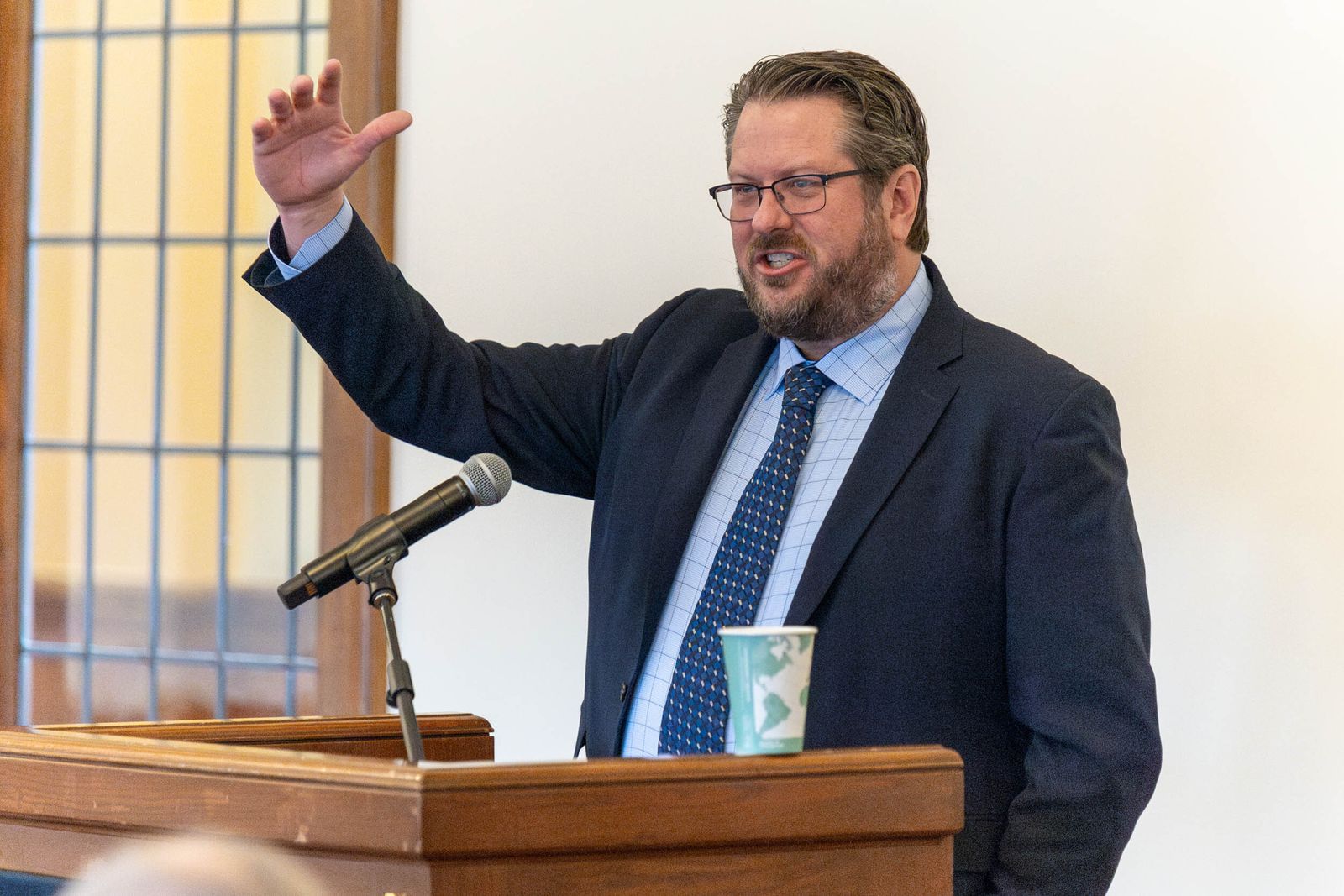
This viewpoint directly contrasts with the secular viewpoint that “vulnerability negates dignity,” he said, adding the secular culture promotes utilitarianism — the greatest good for the greatest number of people. “Your moral requirement, then, is to be useful,” Eberl observed. Consequently, the medical community often measures a dignified death by “quality of life.”
This worldview leads to the assumption that “a life perceived as poor does not deserve to continue,” Eberl said. “Human life is no longer recognized as a value in itself.”
Instead, Eberl said, the Catholic medical community ought to see each person as inherently valuable because of his or her creation in God's image. He pointed to the example of St. Thomas Aquinas, who said ending one’s life violates the natural inclination to self love, as well as the common good of community. Finally, it violates God's sovereignty as Lord of the life He creates, Eberl said.
“We are inherently part of a community,” he said. “I only have stewardship of my life. I don’t own my life.”
In contrast to the push to legalize and promote assisted suicide, Pope Francis has endorsed creating a “culture of accompaniment,” approaching those tempted to take their own lives with love and mercy, Eberl said.
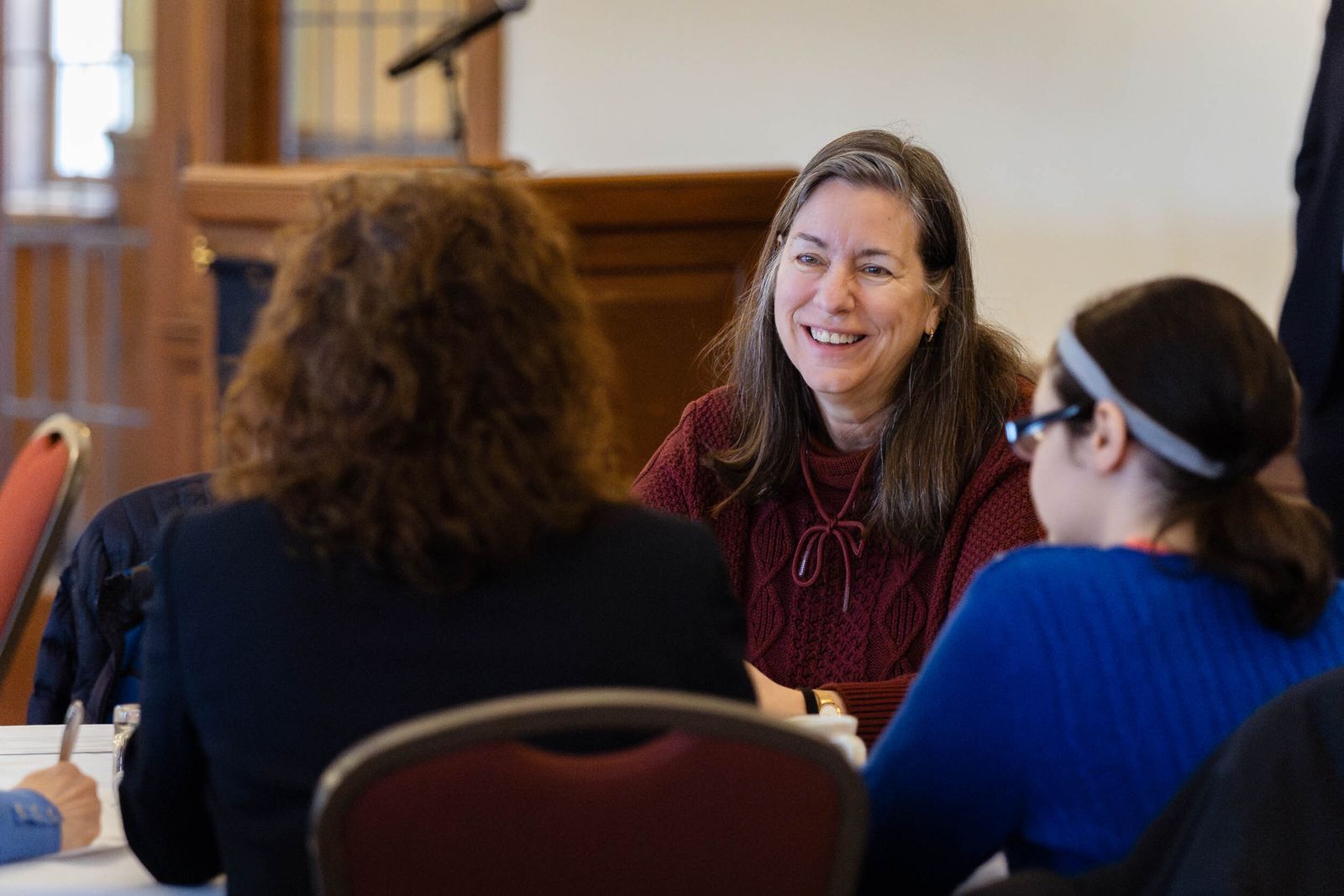
“So many people end up alone and isolated as they are aging and approaching death,” Eberl explained. “We should accompany them, to the point that they don’t feel like they need to make that choice anymore.”
One of the professionals attending the event, Mike Harning, a chaplain at Trinity Health of Oakland, said his hospital has a volunteer program that accompanies dying patients. The "No One Dies Alone" program trains volunteers to accompany those who are dying, especially when family members cannot be present.
Given the increasingly aging population, Harning said presentations like Eberl’s are critical to educate medical professionals about the dignity of life and to give them the tools to compassionately care for those approaching the end of life.
Dr. Eric Collins, a resident in psychiatry at the Detroit Medical Center, also attended the Mass and presentation with his wife and two children. Dr. Collins said proposed legislation on euthanasia being considered in Michigan makes the the topic even more relevant.
“End-of-life issues tend to make us think about our lives,” Dr. Collins said. “Thinking about a good death is really about living a good life.”
Copy Permalink
Catholic health care


